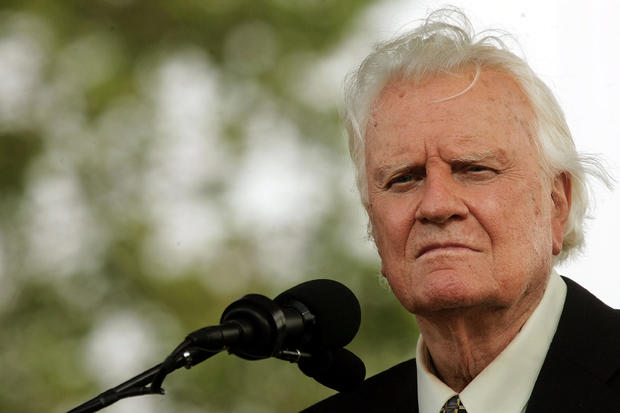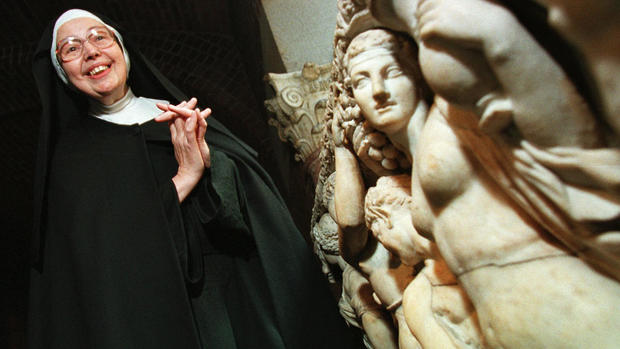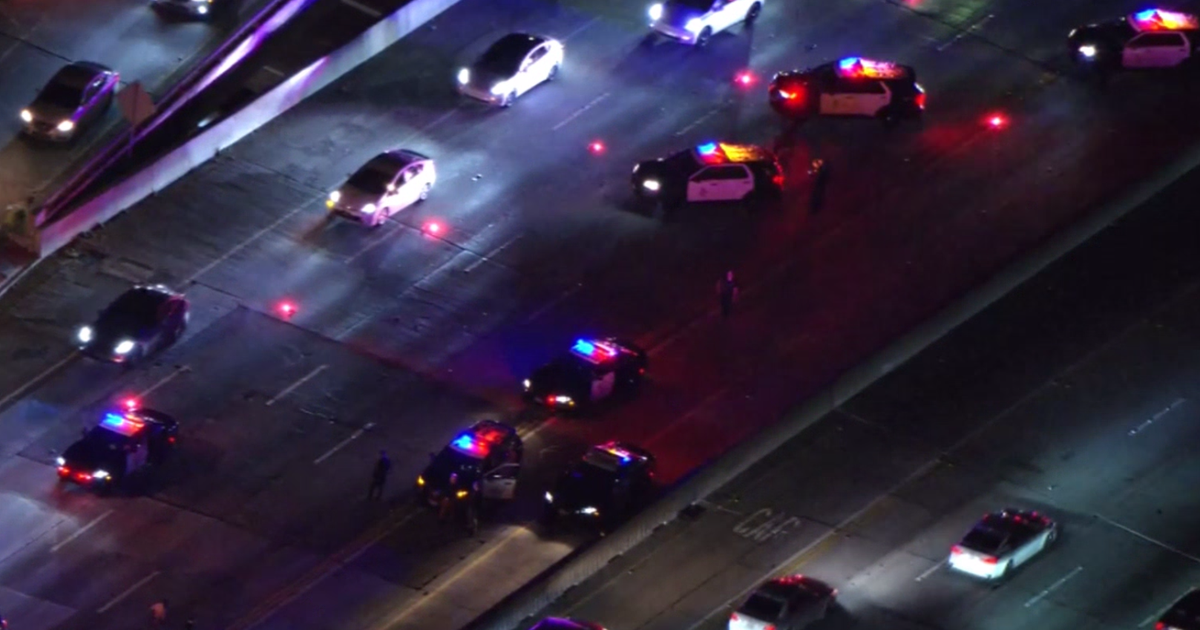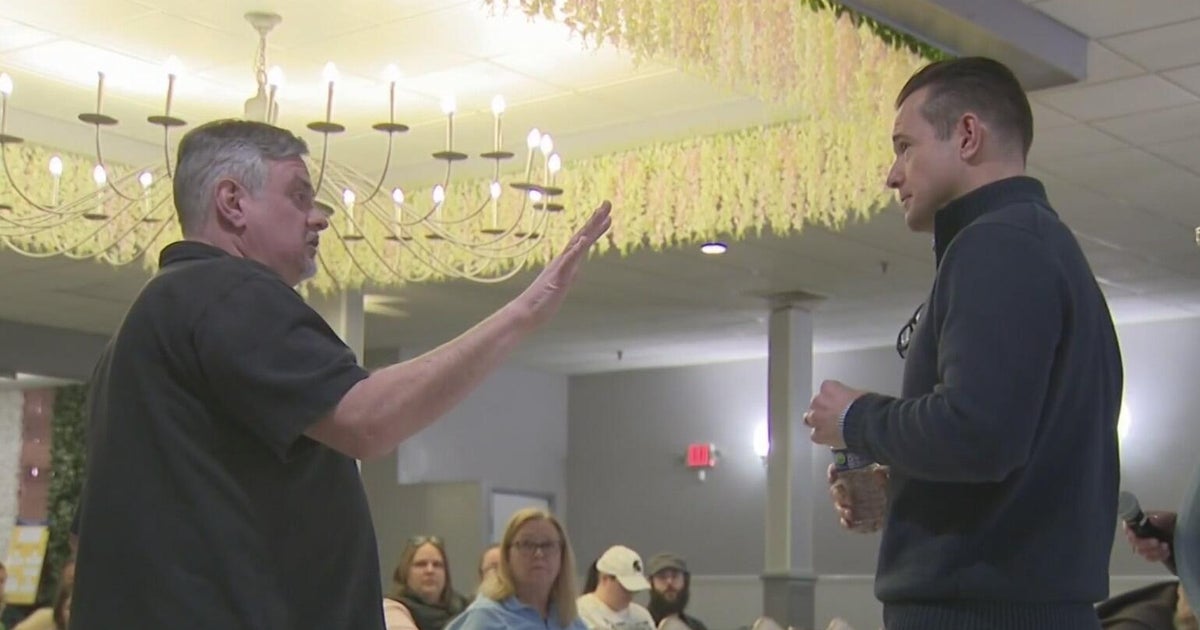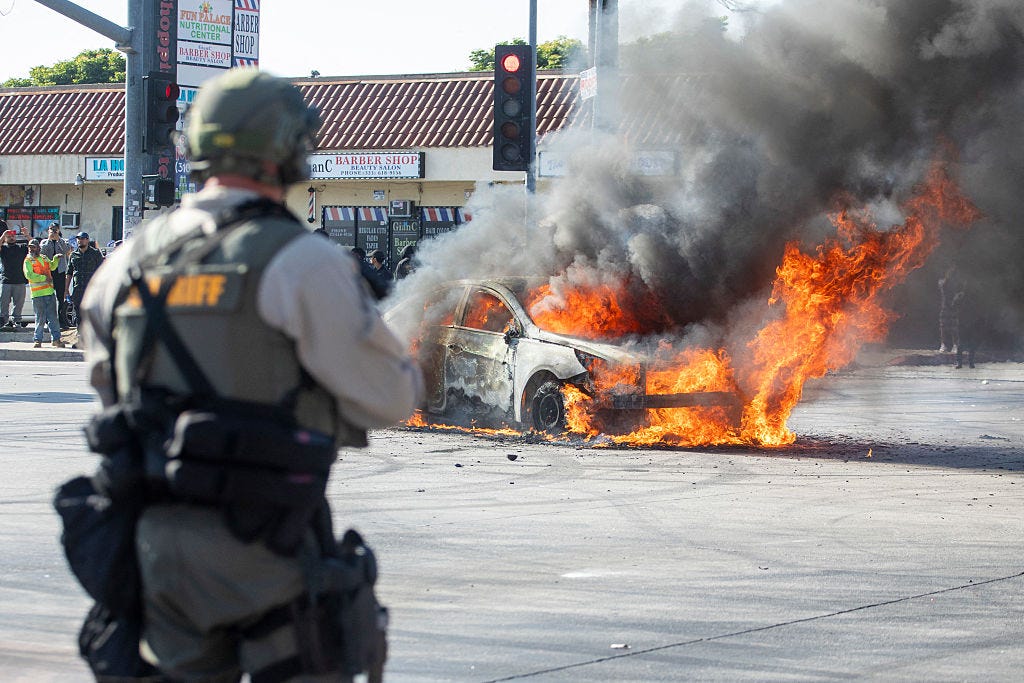Billy Graham's body makes journey from mountains to Charlotte
ASHEVILLE, N.C. -- Admirers took photos on their phones, fire trucks parked on freeway overpasses and police officers saluted as a motorcade carrying the body of the Rev. Billy Graham crossed the evangelist's beloved home state of North Carolina for four hours Saturday from his mountain chapel to namesake library in the state's largest city.
Residents in some of Graham's most cherished places paid tribute to "America's Pastor," starting at the training center operated by his evangelistic association in Asheville. The motorcade rolled through Black Mountain, where he shopped and caught trains, and Montreat, where he lived.
Well-wishers lined sidewalks and medians as the motorcade reached Charlotte. Pallbearers, followed by family, carried the coffin into the Billy Graham Library, which will serve as a backdrop for the funeral.
Franklin Graham said he was fulfilling a promise to his father to bring the body to Charlotte. He said he was overwhelmed by "the outpouring of love."
Leighton Ford, the evangelist's brother-in-law, said the procession brought gratitude and tinge of sadness.
"I think he'd say, 'It's not about me. It's about the Lord,'" said Ford. "I remember at his last stadium meeting here in Charlotte, the mayor of Charlotte told us he was riding out on the platform with Billy, and everybody was cheering, and Billy said, 'Wait a minute. It's not about us. It's about Him.'"
Graham, who died Wednesday at his home in North Carolina's mountains at age 99, reached hundreds of millions of listeners around the world with his rallies and his pioneering use of television.
A viewing will be held at the library in Charlotte on Monday and Tuesday. Graham will also lie in honor in the U.S. Capitol Rotunda on Wednesday and Thursday, the first time a private citizen has been accorded such recognition since civil rights hero Rosa Parks in 2005.
The procession is part of more than a week of mourning for "America's Pastor," culminating with his burial next week at his library in Charlotte. A viewing will be held at the Billy Graham Library in Charlotte on Monday and Tuesday.
Graham will also lie in honor in the U.S. Capitol Rotunda next week, on Feb. 28 and March 1, the first time a private citizen has been accorded such recognition since civil rights hero Rosa Parks in 2005.
He will be laid to rest March 2 at the foot of a cross-shaped walkway at the Billy Graham Library in Charlotte, buried in a simple prison-made plywood coffin next to his wife, Ruth, who died in 2007. His coffin was built by inmates at the Louisiana State Penitentiary in Angola, Louisiana, who typically construct caskets for fellow prisoners who cannot afford one.
The funeral will be held in a tent in the main parking lot of Graham's library in tribute to the 1949 Los Angeles tent revivals that propelled him to international fame, family spokesman Mark DeMoss said. About 2,000 people are expected at the private, invitation-only funeral.
Graham, who died Wednesday at his home in North Carolina's mountains at age 99, reached hundreds of millions of listeners around the world with his rallies and his pioneering use of television.
In the summer of 2005, Graham preached at what he called his "Final Crusade."
"Deep inside we need something else," he said. "And that something else can be brought about by Jesus."
"When I touch the podium, I can feel a new strength and a new power come and it's a thrilling thing for me to preach the gospel at this age," Graham said.
The three-day event in New York City was the culmination of a lifetime of evangelism -- seven decades of spreading the gospel to more than 200 million people in 185 countries around the world.
Graham once said: "Jesus Christ, the son of God, has an answer to every problem that you face!"
Raised in the fundamentalist faith of his native North Carolina, Graham dedicated his life to Christ when he was 16, and was ordained a Baptist minister in 1939. He created his own brand of populist evangelism.
He also passed on a business model for running a corporate church -- one that would catapult him to success and leave a blueprint for future mega-pastors, even as it proved nearly impossible to duplicate. He leaves behind two nonprofits, and he wrote nearly three dozen books and a weekly newspaper column, hosted a radio show and had a hand in the production of hundreds of movies. He was also involved in founding two magazines.
